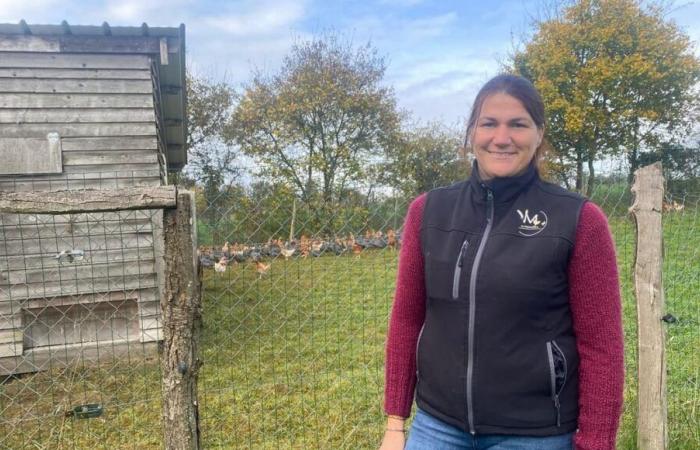She didn’t expect it. Like all Mayenne poultry breeders, Sylvia Goisbault received an email from the department’s Chamber of Agriculture last Friday, announcing that the risk for avian flu became “high” from the next day, Saturday November 9. The breeder at l’Huisserie, near Laval, has been established since 2013. However, she had difficulty deciphering the decree published by the Ministry of Agriculture. “The words are not that complicated, but it is the sentence that is long, and above all not synthesized.“
Risk reduction
To see more clearly, and put in place the requested restrictions, the breeder therefore consulted a document provided by the FNSEA in the event of a “high” alert levelthe highest level of risk. “It is simply a small graphic diagram which explains by category of poultry (chickens, guinea fowl, turkeys) the obligation to shelter in a closed building. And then behind, he explains that we can put them outside from eight weeks, if we have a compliant biosecurity audit.“
Sylvia Goisbault carried out this audit last year. Thanks to him, she the authorization of the health services to leave most of its animals in the open airbut on condition that their outdoor space is reduced. “It is often wild animals that come to bring avian flu. So reducing outdoor spaces also reduces the risk of them coming to eat where there are poultry. It’s just a question of statistics, risk reduction“, she explains.
Emma Jacob
Increased mortality for confined animals
For the moment, the breeder has not had time to reduce the outdoor spaces of all her animals. Some have therefore been locked up for three daysincluding sexually mature males. “And they are disgustingshe smiled. It’s complicated because they tend to sting chickens. And clearly, this is mortality that we fear. So that’s why leaving them in sixty square meters, we know there will be breakage.“
The other change to limit possible contagion of the disease concerns the food of its animals. “Usually, when we are not in avian flu period, I have my feeders outside, and I come with my tractor and then presto, I put on top of the feeders and I no longer have only to empty Today, we have to bring the feeders inside and everything is fed from the bucket. Believe me, I have great arms!” If vaccination against avian flu exists, it is not obligatory. The breeder, in any case, ruled out this option, as it was far too expensive for her: around 13,500 euros.







